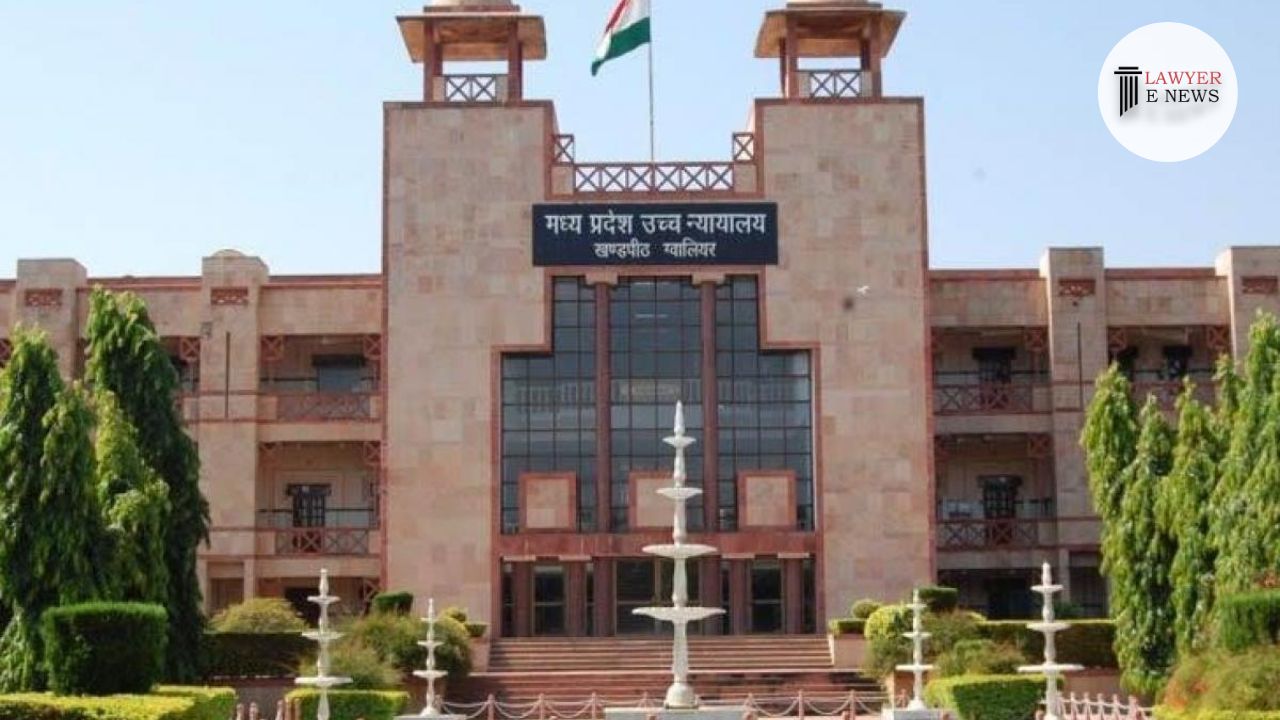-
by Admin
15 February 2026 5:35 AM



Madhya Pradesh High Court, in the case of Anoop v. The State of Madhya Pradesh, dismissed the appeal challenging the appellant’s conviction under Sections 7/8 of the Protection of Children from Sexual Offences Act, 2012 (POCSO Act). The appeal questioned the reliability of evidence, the prosecutrix's age determination, and alleged false implication due to prior enmity. The court upheld the appellant’s conviction and three-year sentence for sexual assault of a minor, affirming the sufficiency of the scholar register in determining the victim’s age.
The case arose from an incident on August 28, 2018, where the prosecutrix, a minor girl, accused the appellant, Anoop, of sexual assault. According to the victim's testimony, the appellant lured her and her friend to his room, pressed her chest, and threatened them. A police report was lodged, and the appellant was charged under Sections 7/8 of the POCSO Act.
During the trial, the prosecutrix's age was a contentious issue. The trial court relied on the scholar register (Exhibit-P/6), showing her date of birth as October 9, 2007, making her under 12 years of age at the time of the incident. The appellant disputed this, claiming the prosecution had not properly proven the victim's age and that the evidence against him was inconsistent.
The appellant argued that the scholar register alone was insufficient to determine the victim’s age. He contended that other evidence, such as birth certificates or medical reports, should have been considered. The court, however, affirmed the trial court’s reliance on the scholar register, referencing the Supreme Court’s ruling in Jarnail Singh v. State of Haryana (2013), which allows the scholar register as admissible evidence for age determination when no birth certificate is available. The court stated, “The date of birth in the scholar register (Exhibit-P/6) as October 9, 2007, proves the prosecutrix was below 18 years of age, making her a 'child' under the POCSO Act.”
The appellant pointed out contradictions in the testimonies of the prosecution’s witnesses, particularly that of the victim’s friend, who had turned hostile. The court held that minor contradictions or discrepancies do not discredit the prosecutrix’s testimony. It emphasized the importance of the victim's consistent account and reiterated that “in sexual assault cases, the testimony of the prosecutrix is paramount, and minor inconsistencies do not undermine its reliability.”
The appellant claimed that his actions lacked sexual intent and that the prosecution failed to prove such intent. The court, however, invoked Section 30(1) of the POCSO Act, which presumes culpable mental state in such offenses unless proven otherwise by the defense. The court noted, “The appellant's act of pressing the prosecutrix's chest clearly evinced a sexual intent, and he failed to rebut the presumption under the POCSO Act.”
The appellant argued that he was falsely implicated due to animosity with the victim's family. The court dismissed this claim, citing the Supreme Court’s ruling in Ramesh Baburao Devaskar v. State of Maharashtra (2007), which held that while enmity can be a motive for false implication, it cannot by itself discredit a well-founded prosecution case.
The court upheld the appellant’s conviction under Sections 7/8 of the POCSO Act, rejecting the contention that charges should have been framed under Section 9/10 due to the victim’s age. It stated that remanding the case for retrial was unnecessary, as the three-year sentence under Sections 7/8 was appropriate given the circumstances.
The court also observed that the appellant’s conduct clearly demonstrated sexual intent, citing the Supreme Court’s ruling in State of Punjab v. Major Singh (1967), which defined the essence of a woman’s modesty as her sex. The court held that the appellant’s act of pressing the prosecutrix’s chest “constituted an act intended to outrage her modesty,” regardless of her age or awareness of the act.
Finally, the court dismissed the appellant's plea for leniency in sentencing. It noted that POCSO Act offenses warrant stringent punishment, particularly in cases involving minors, and affirmed the trial court’s sentence of three years rigorous imprisonment with a fine of Rs. 1,000.
The Madhya Pradesh High Court’s decision reinforces the strict approach to sexual offenses under the POCSO Act, particularly the reliance on the scholar register for age determination and the presumption of culpable mental state. The appellant’s conviction and three-year sentence were upheld, sending a clear message about the seriousness of offenses involving minors.
Date of Decision: September 20, 2024
Anoop v. The State of Madhya Pradesh
